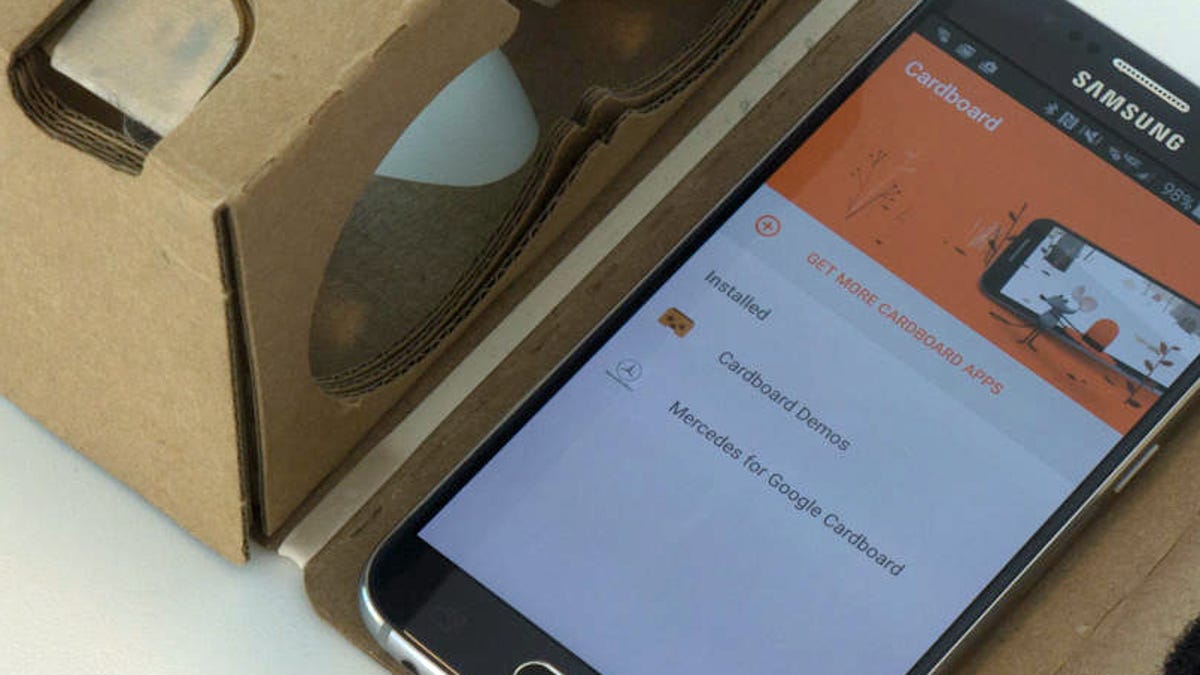Google open-sources Cardboard in wake of Daydream VR's demise
The move will allow developers to continue building experiences for the low-cost phone-based VR project.

Google is open-sourcing the software behind its Cardboard VR experience.
Google said Wednesday that it will open-source the software for Cardboard , the company's low-cost phone-based VR experience. The move comes less than a month after Google said it would discontinue its Daydream VR program.
The move will let developers continue to build virtual reality experiences and add Cardboard support for iOS and Android apps. The project's tools provide APIs for head tracking, lens distortion rendering and input handling, as well as an Android QR code library so developers aren't dependent on the Cardboard app for viewer pairing.
"We think that an open source model -- with additional contributions from us -- is the best way for developers to continue to build experiences for Cardboard," Jeffrey Chen, product manager for AR and VR, said in a blog post.
Google's move to open-source the project comes as the company has essentially thrown in the towel on smartphone-powered VR headsets. The idea was to let people take high-end phones like its Pixel line and pop them into relatively cheap headsets.
The phone screens would then be so close to people's eyes that they'd trick these people's brains into believing they were in the computer-generated world.
The Cardboard headset, built with low-cost lenses and folded cardboard, made it a popular marketing tool and part of corporate goodie bags. But the Daydream VR program didn't catch on with consumers, and Google said in October it would discontinue it.
Google has said it plans to focus efforts on emerging augmented reality technology, which overlays computer images on the real world.

